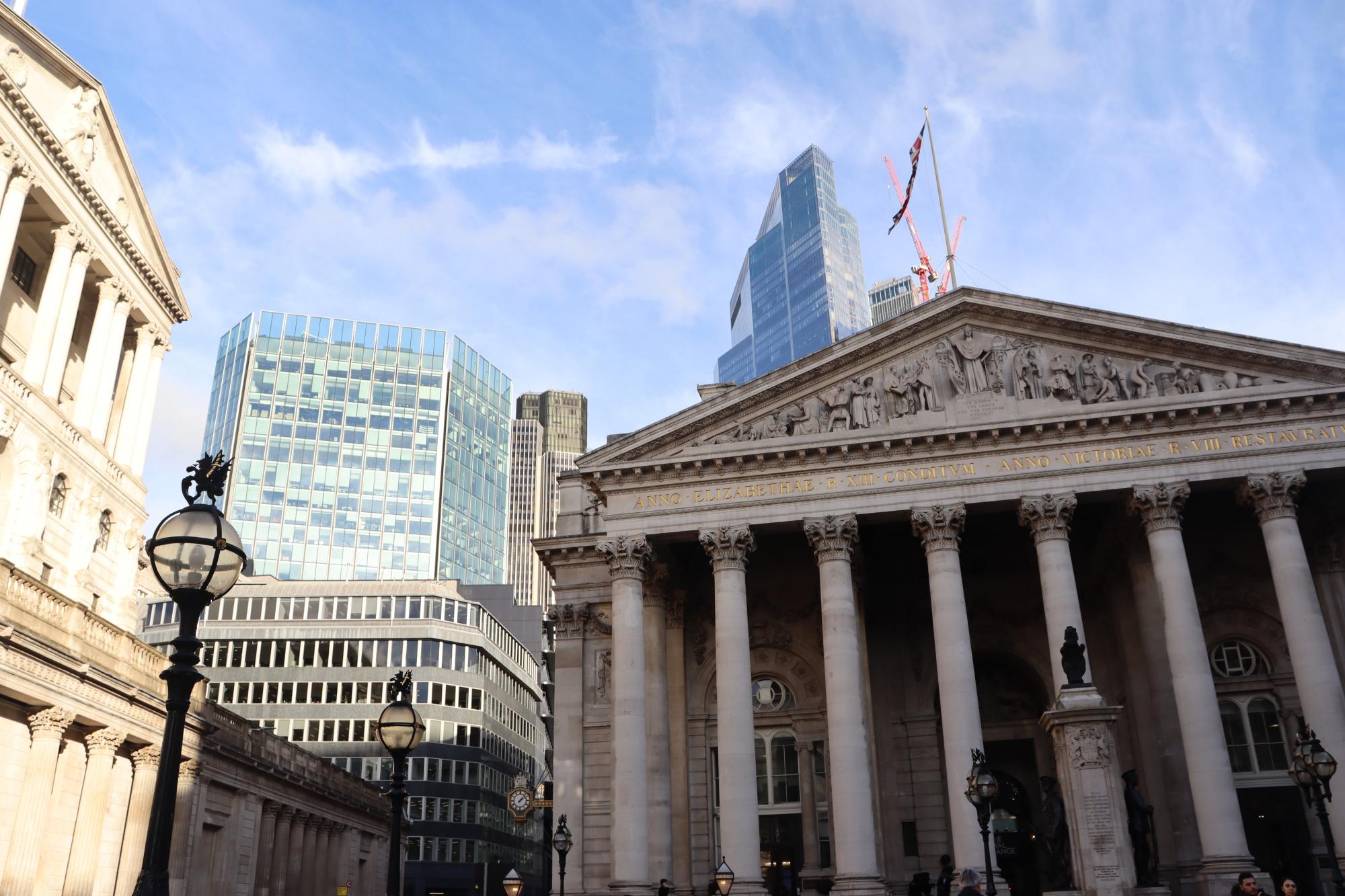Visa Stock Analysis: Is Visa a Strong Opportunity Ahead of Q4 Earnings?
$325.48
28 Jan 2026, 19:25

Unsplash.com

Despite mounting signs of economic distress, the Bank of England is poised to maintain interest rates at their 15-year high on Thursday as it fights an inflation rate that is more than three times higher than its target.
The BoE's string of 14 consecutive interest rate hikes between late 2021 and August of this year to manage inflation is having a negative impact on the housing market, jobs, and consumer spending in Britain, which continues to have the highest inflation rate among wealthy nations.
October 2022 saw a higher-than-comparable economy rate of 11.1% of consumer price inflation, which has also decreased more slowly. September saw it remain at 6.7%. Core inflation decreased, with the exception of unpredictable fuel and food prices. However, the inflation of service prices—which the BoE keeps a careful eye on—rose.
According to Governor Andrew Bailey, the numbers were in line with the BoE's projections. When the spike in energy prices from the previous year disappears from comparison, economists predict a sharp decline in headline inflation in October.
The Bank of England, however, predicted in August that inflation would only reach 2% in 2025's second quarter. On Thursday, it is scheduled to release updated forecasts.
Official data shows that the fastest salary increases in at least 22 years have only somewhat abated. Other, more obvious indicators that the labour market's inflationary heat is lessening include slower increases in the starting salaries of those recruited by recruiters. Difficulties in administering surveys by Britain's Statistics Office have made assessing the job market more difficult.
In addition, like in many other nations, the housing market in Britain saw a boom during the COVID-19 epidemic, but a dramatic decline in transactions and borrowing for home purchases has resulted from the rise in mortgage borrowing costs, further impeding the overall economy. Nonetheless, it is important to contrast the roughly 5% decline in home values since September with the 25% increase from the beginning of the pandemic era to the peak.
Furthermore, only a portion of the nearly 1% decline in retail sales volume during the three months leading up to September 2023—the first since early 2023—can be attributed to unseasonal weather.
The shaky statistics, according to economists, increased the likelihood that Britain's GDP shrank in the third quarter of 2023 and might have signalled the beginning of a recession.
A gauge of consumer confidence dropped precipitously in October as consumers struggled with the cost of living crunch.
To conclude, the BoE's chief economist, Huw Pill indicated that the bank will likely keep interest rates high to guarantee that inflation is kept out of the economy.
Most investors appear to agree thus far. The financial markets predict that the BoE will not lower the bank rate until August 2024. In contrast, market expectations point to a June first rate cut in the US. It is also anticipated that the European Central Bank will lower borrowing costs before the Bank of England.
(Sources: investing.com, reuters.com)